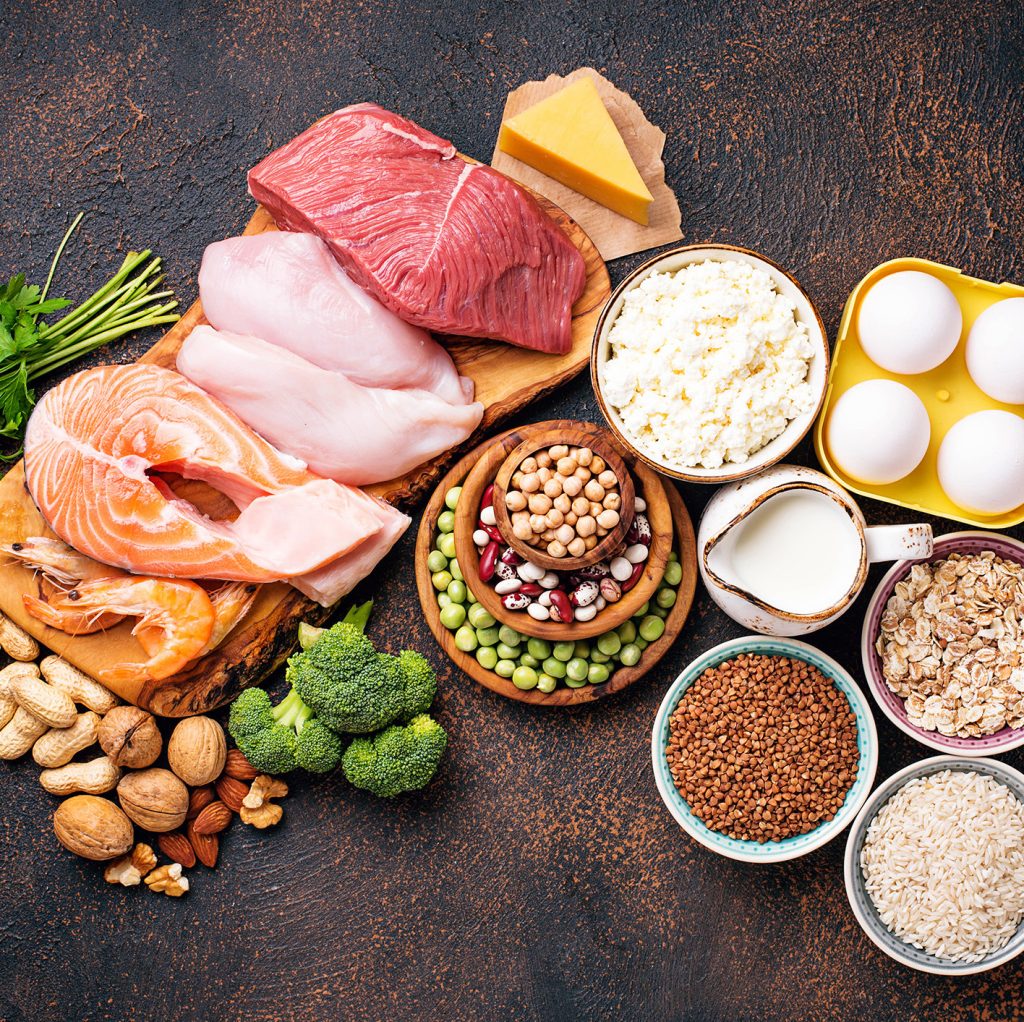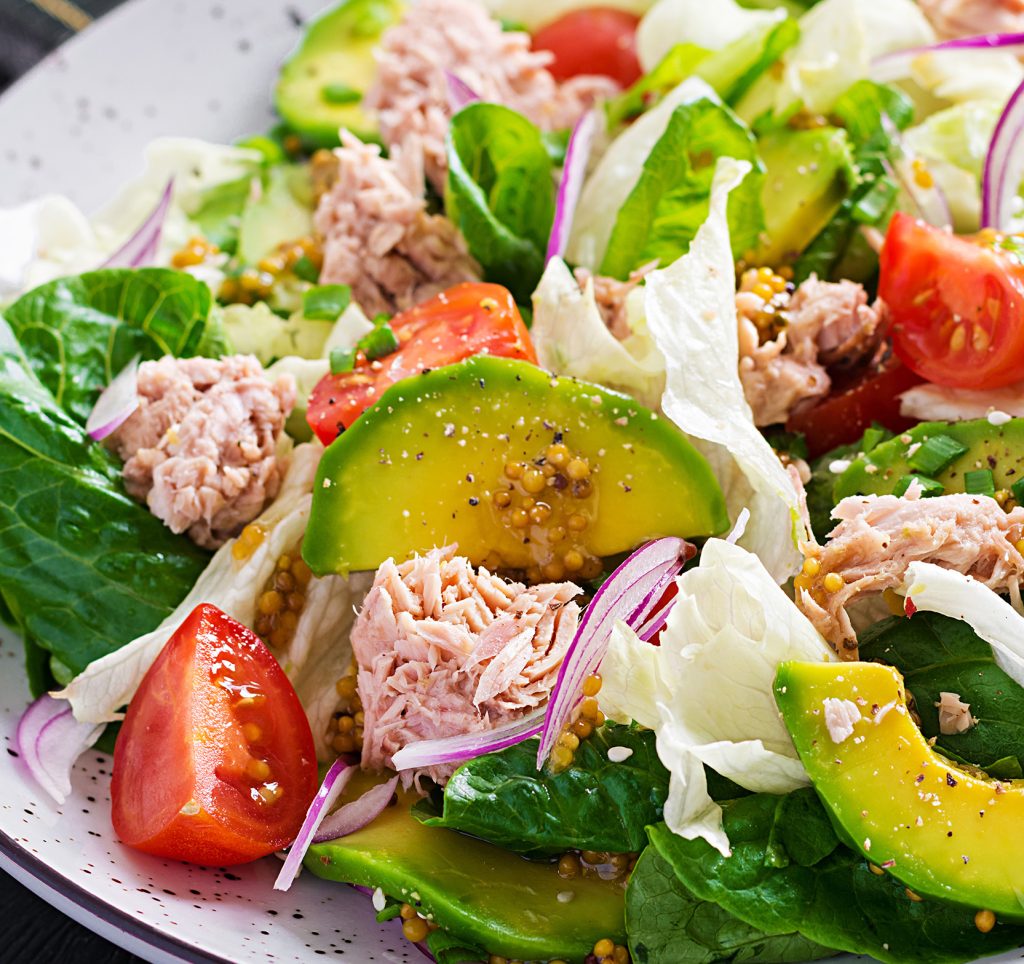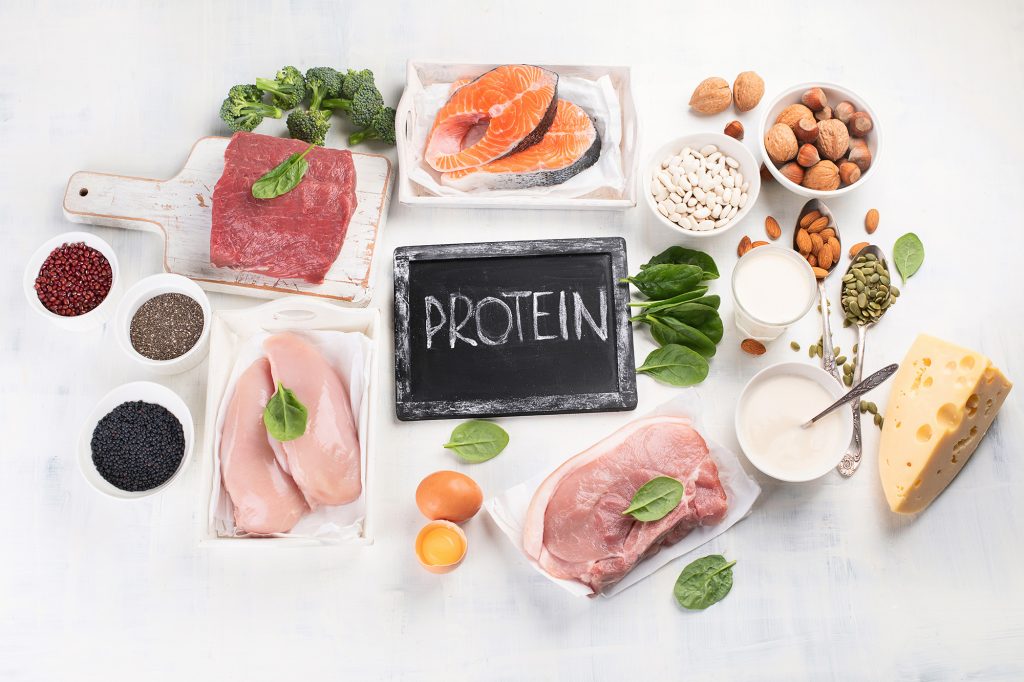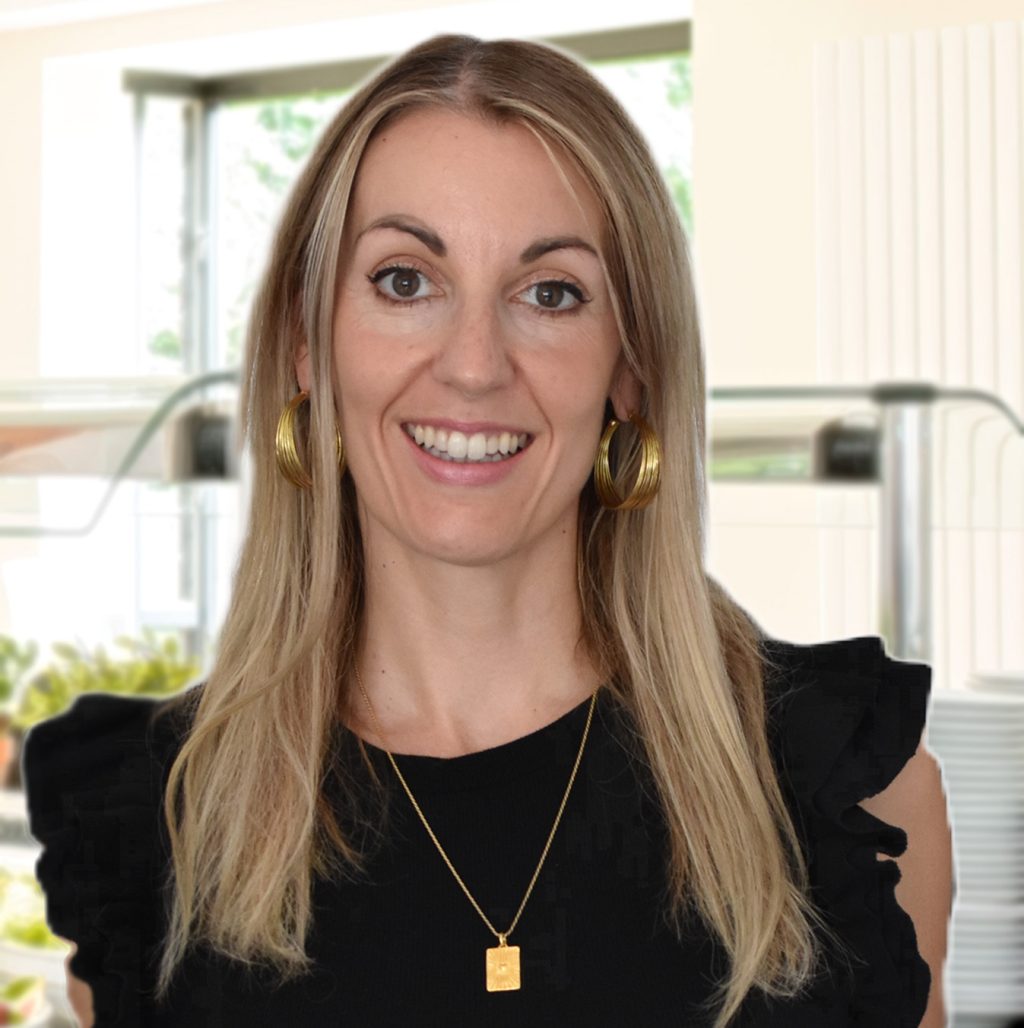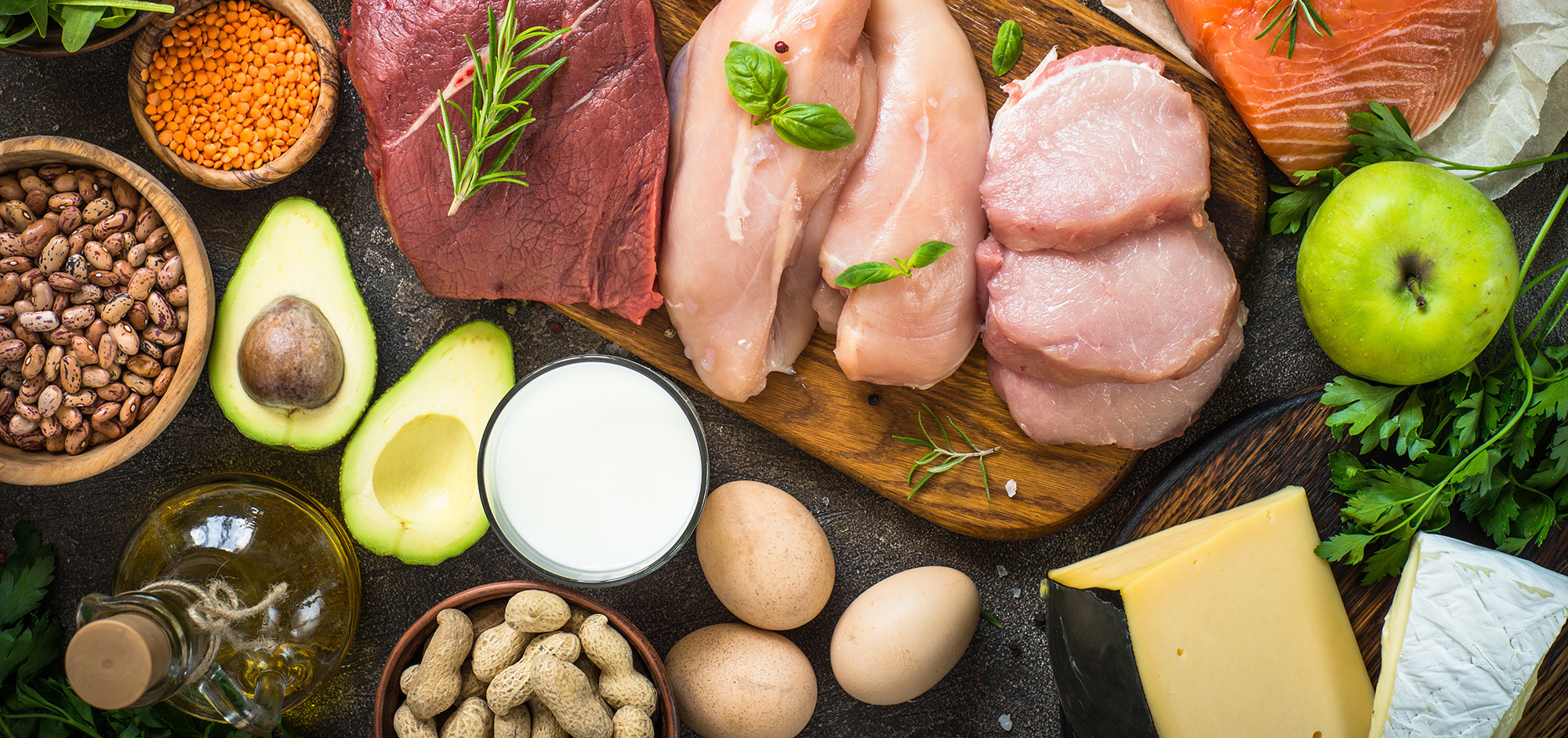
60 second summary:
- If you meet NHS guidelines for activity, your protein needs are no different from less active individuals
- Even if you’re training regularly, you can get enough protein to fuel your performance through food alone
- Many strength athletes can still grow muscle by eating a range of foods without having to eat 6 meals a day
- Protein doesn’t just come from traditional sources like meat, fish and eggs. Throughout the day, pulses and even pasta and bread can contribute
- Beware the hyper-focus on protein to the detriment of other food groups like carbohydrate. Protein is not the be all and end all to performance!
What does the science say?
The NHS advises that all adults should aim to do 150 minutes of moderate intensity exercise or 75 minutes of high intensity exercise each week, alongside at least two sessions of resistance exercise. You can get an idea of the type of exercises in each category from the figure below:
You might also wish to try high intensity interval training such as spin classes, sprinting, hill running, or circuit training if you are particularly fit and active.
If you meet these exercise requirements then you’ll need around 0.8g of protein per kilogram of body weight, as recommended by the authority on sports nutrition, the ACSM (American Academy of Sports Nutrition).
If you weigh 70kg, that’s 56g protein a day, which is very easily met by eating a couple of meals a day that contain a good source of protein for example, a chicken breast, 200g chickpeas in, say, a curry and a small handful of almonds as a snack. See our handy graphic below for ideas on how to get your protein fix whatever your dietary needs.
What if I’m more active? Surely the more protein the better?
Well, yes but only to a point
If you are training hard for an endurance event such as a marathon or bike ride, then you might need to increase your protein intake to up to 1.2-1.4g per kilo bodyweight a day to help you maintain and build muscle for your event. So, for our 70kg individual, that’s 84g protein a day which is still achievable from 3 meals a day. For example, you could eat 50g oats with 200ml semi-skimmed milk and 100g Greek yoghurt for breakfast, a tuna sandwich for lunch and a salmon fillet for dinner.
Even if you’re looking to gain significant muscle for strength sports like rowing, rugby or bodybuilding, you still only need around 1.7-2g protein per kilo bodyweight a day, which is 119g protein a day for our example. You could achieve this by eating 3 poached eggs on toast for breakfast with a glass of milk, a chicken breast in a wrap and a veggie curry with 100g Quorn mince and 200g lentils with a couple of snacks of 150g Greek yoghurt and a handful of almonds plus some cheese with oatcakes.
Consuming more protein than this won’t super charge your muscle building and recovery. You’ll simply use the protein for energy.
Also remember that many foods such as oats, bread and pasta and other grains also provide useful amounts of protein. It doesn’t all have to come from meat, fish, eggs and pulses. So, your total meal might contain significantly more protein than you count from those more traditional sources.
Also, keep in mind that you also need to eat a source of carbohydrate and essential fats to be of optimal benefit to athletic performance. It’s not just about protein!
Bear in mind, if you think you fall into either this endurance or muscle gain category, your needs are only this high if you train hard and regularly (e.g. at least 5 times a week). Otherwise, you’ll need less.
Typical examples of exercise intensity:
How can I meet my protein target without buying expensive supplements?
It’s always best to take a food first approach with a varied and balanced diet rather than relying on powders which can be expensive or protein bars which are often high in sugar and ultra-processed.
Cows’ milk and soy milk offer great sources of protein and can be used in cooking or as a drink alongside a snack or meal. They’re also fantastic post-workout for supplying protein to support muscle recovery without the need for pricey powders.
Even if you’re eating a plant-based diet, you can still hit your protein goals, although it’s best to eat a wide range of sources, to ensure you’re getting the best quality protein throughout the day.
Take a look below for some ideas of how to meet your needs but keep it realistic compared with your activity levels. The internet will tell everyone they need at least 2g per kilo bodyweight a day but it’s really not necessary for those who are moderately active. You certainly don’t need to be eating protein foods 5 or 6 times a day unless you’re a serious heavyweight bodybuilder.
Hit your protein target with whole foods!
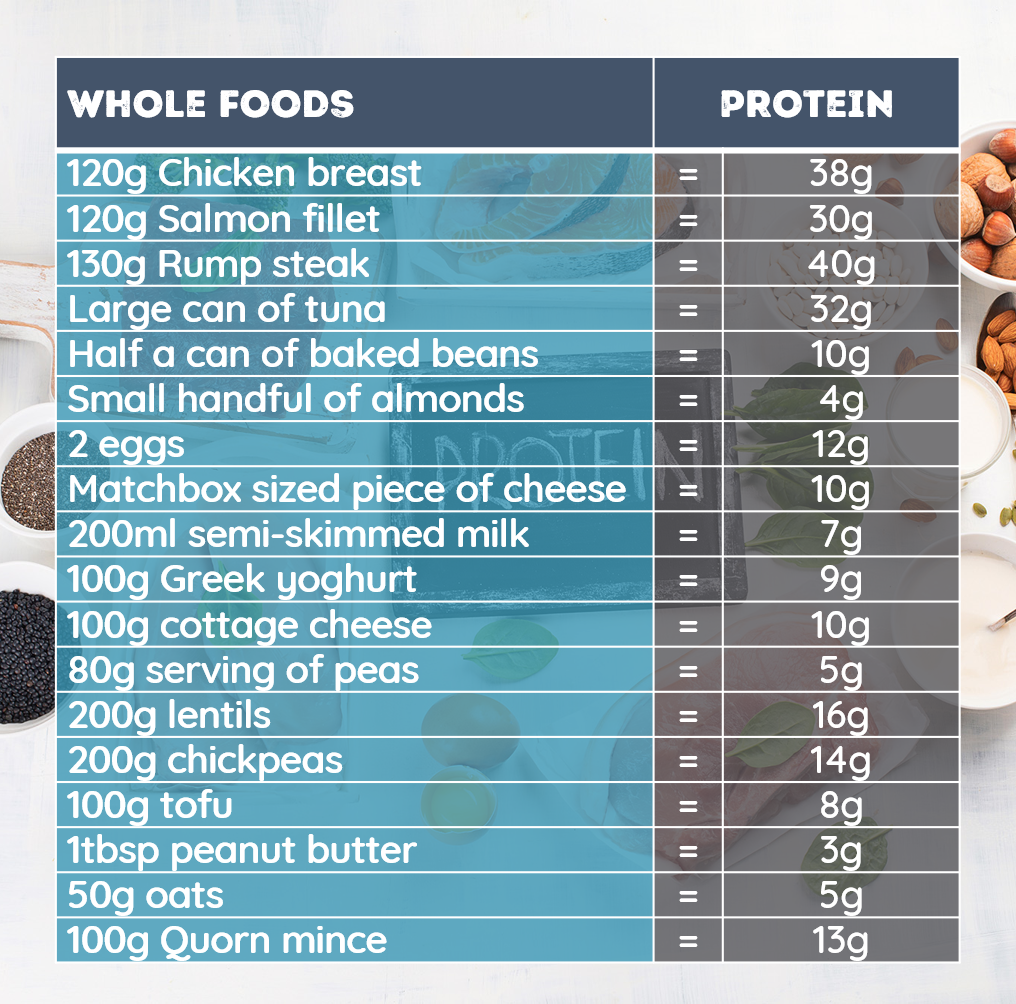
Summary…
In short, protein is important for everyone, especially if you’re active, but you can hit your needs easily through a balanced diet, without needing to constantly snack on eggs and tuna or use expensive supplements. Don’t forget that balance is key: carbohydrate foods, essential fats and fruit and veg are a vital part of a healthy diet for active individuals. It’s not just about protein!
Claire Baseley – Consultant Nutritionist

